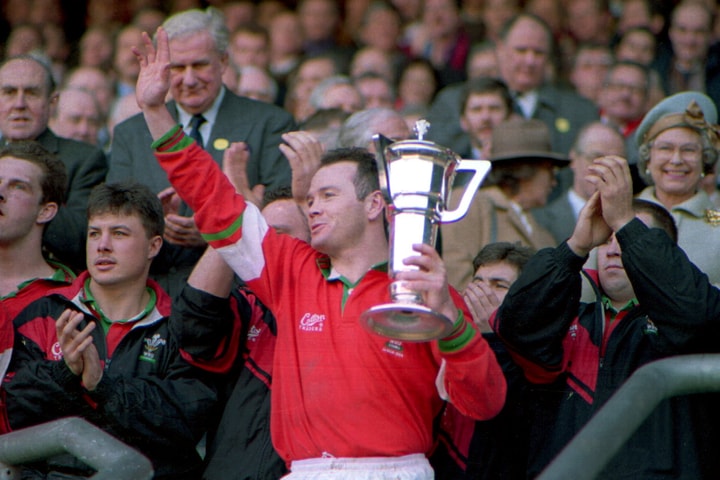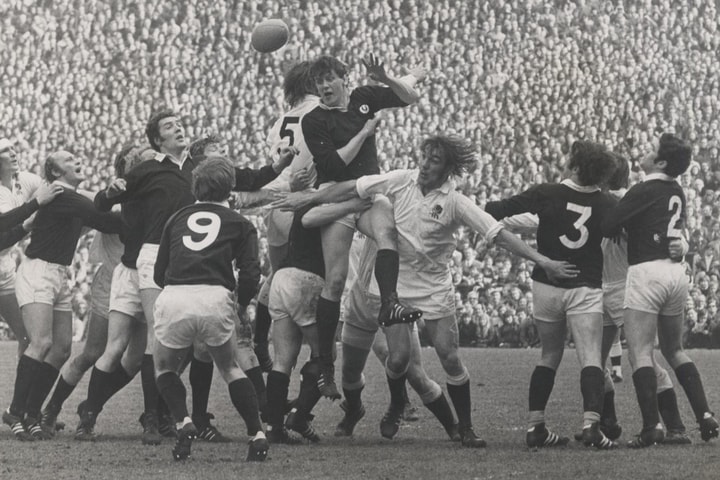The All Blacks were unbeaten on their tour of the UK and this
was their 28th match. Both sides were fully primed and so
aggressive were the opening exchanges that the Welsh referee Albert
Freethy issued a general warning to both sides after seven minutes
of play. Three minutes later he repeated the warning and ordered
Cyril Brownlie to leave the field. In a post-match interview the
referee stated that he ordered Brownlie off for "deliberately
kicking on the leg an English forward, who was lying face downwards
on the ground" and "therefore he was obliged to act
drastically".
Whatever the rights and wrongs of the incident, and views were
expressed afterwards that it was an English forward who should have
been sent off, the 14-man All Black team performed heroically over
the next 70 minutes to record a 17-11 victory against a strong
English side captained by the great Harlequins forward Wavell
Wakefield.
It would be more than 40 years before a second player was
dismissed in a major international, this time at Murrayfield in
December 1967. Once again it was an All Black second row forward
who transgressed with five minutes of the match remaining. Colin
Meads launched a wild kick which failed to connect with a rolling
ball on the ground after a ruck but instead hit the Scottish fly
half David Chisholm on the head. The Irish referee Kevin Kelleher
had already cautioned Meads for rough play earlier in the match and
immediately sent Meads off the field. Although hugely
controversial, the sending off did not affect the result as the All
Blacks retained their 14-3 lead at the final whistle.
As the number of international matches increased during the
1970s, it was in retrospect inevitable that more dismissals would
occur. The English prop Mike Burton threw a retaliatory punch in
the opening exchanges of the second test against Australia at
Ballymore, Brisbane in May 1975 and then almost immediately
late-tackled the Australian winger, Doug Osborne. There were no
neutral referees or official TV back-up in those days and the
Australian referee, Bob Burnett, gave Burton his marching orders.
Peter West of The Times took a very dim view of the incident and
indeed the entire match:
"The sight of 16 forwards flinging punches in all
directions, the modern result of flagrantly violent play by
individuals, is no prettier a sight that the incident that sparks
off the general mayhem, but it is becoming more common. What
happened in Brisbane - undoubtedly triggered off by Australia's
intimidatory approach - was a disgrace to the rugby union
game."
Only a year later in June 1976 the sending off of the giant
Fijian prop Jo Sovau in the 57th minute of their third test against
Australia at the Sydney Cricket Ground caused a furore. So incensed
were the Fiji team that they had to be persuaded by their manager
to return to the field after they had all walked off in a gesture
of solidarity with their dismissed colleague. Within a year two
combative forwards, Geoff Wheel of Wales and Willie Duggan of
Ireland, became the first players to be sent off in a Five Nations
match for punching, a bout of fisticuffs that was seen in the full
glory of television. The times were definitely a-changing.









